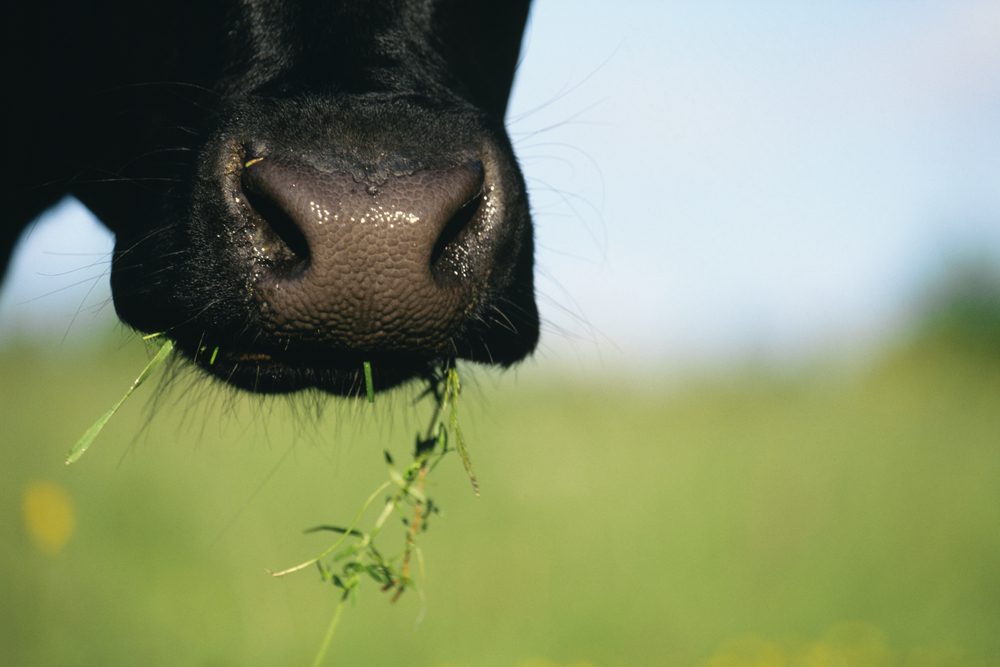Many animals spend their days munching on grass, so why don’t you see humans in a field on all fours enjoying some of that good green stuff? Well, there are a few good reasons why you shouldn’t eat grass (aside from the social stigma thrown your way).
Grass is technically non-toxic, but it holds little-to-no nutritional value for humans, unlike for some other animals.
Why can cows eat grass but humans can’t?
The reason it’s not wise to eat a lawn-based diet is that grass contains a high concentration of compounds that are tough for us to digest. This includes stuff like lignin and cellulose, organic polymers that help to form the walls of plant cells. Lignin is particularly problematic, acting as a tough component that gives plants their woody texture – and grass is full of it.
While there is some evidence that our gut contains bacteria that can break down lignin, our digestive system is not brimming with enzymes that can break down mouthfuls of the compound. Likewise, humans can’t properly digest cellulose. Instead of it being broken down in our guts, it simply passes through in the form of insoluble dietary fiber that help gives our poop structure.

Grass-eating cow, you don’t know how jealous we are. Image credit: BMJ/Shutterstock.com
Fruits and vegetables that we do eat also contain cellulose and lignin, but they have concentrations that are far more manageable for our digestive system. For instance, lawn grass is largely composed of water and lignin. By comparison, just 1 to 2 percent of a carrot is composed of dietary fiber, namely cellulose, the rest being water and carbohydrates, most of which we can digest.
However, certain animals like cows, goats, sheep, and giraffes are able to break down grass thanks to a process called rumination and their famous multi-compartment stomachs.
In the first part of these digestive systems, their grassy chow is repeatedly swallowed, un-swallowed, re-chewed, and re-swallowed. This allows the animals to chew grass more completely, which improves digestion. The heavily chewed grass will then enter a complex system of the multi-chambered stomach, each compartment of which has its own features and functions, that can break grass down thanks to hardcore bacteria that naturally live in their first stomach, the rumen.
We and many other animals, however, lack these complex stomachs. Even beyond giving our guts grief, eating grass can also damage your teeth. Grass is relatively rich in silica, which is abrasive and can quickly wear down teeth.
So, in sum, you can eat grass if you want, but it will most likely result in an upset stomach, bad teeth, and eventually malnutrition. We suggest you stick to vegetables.
Source Link: Can Humans Eat Grass?